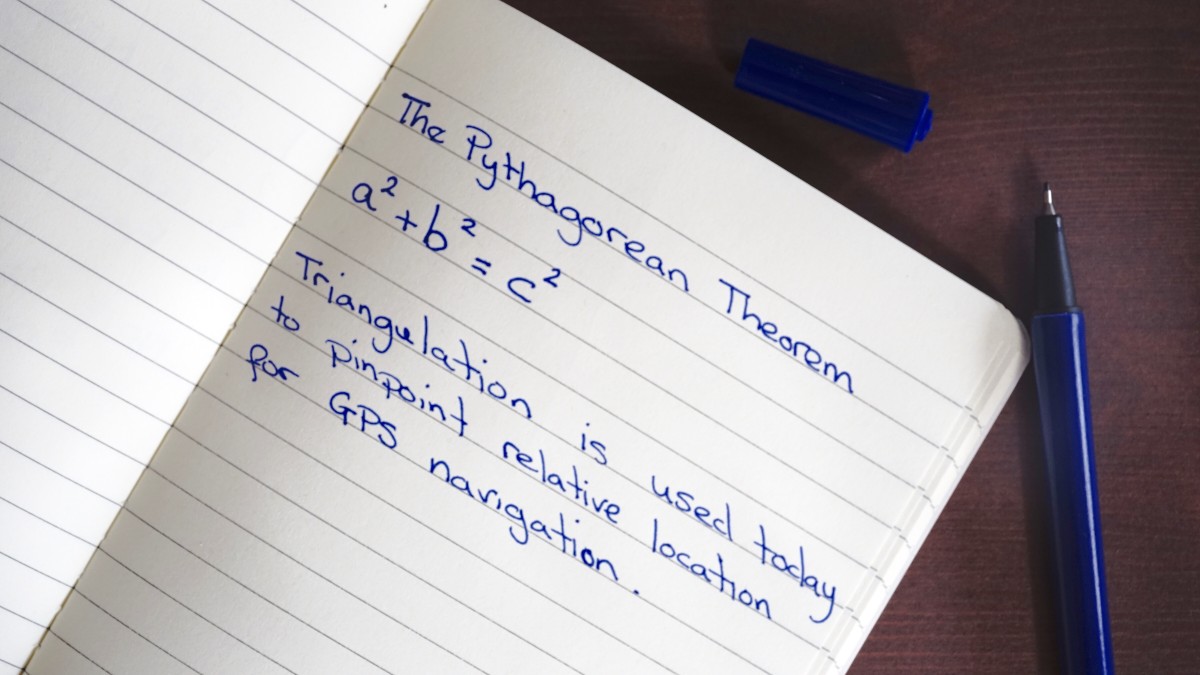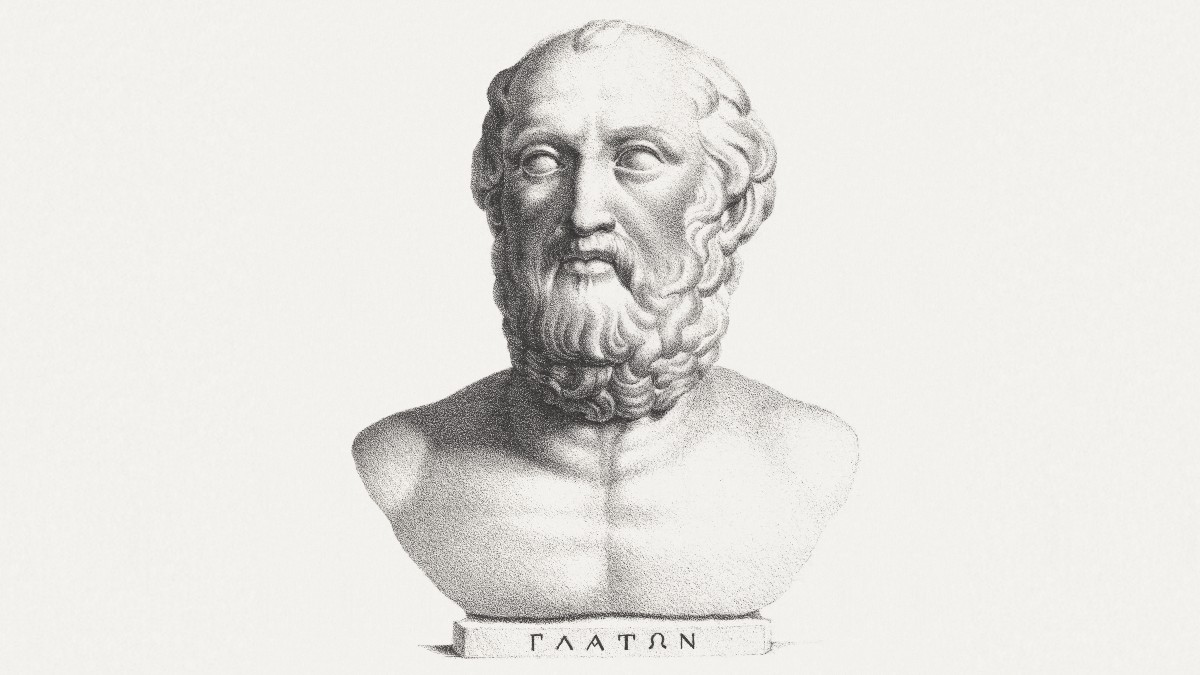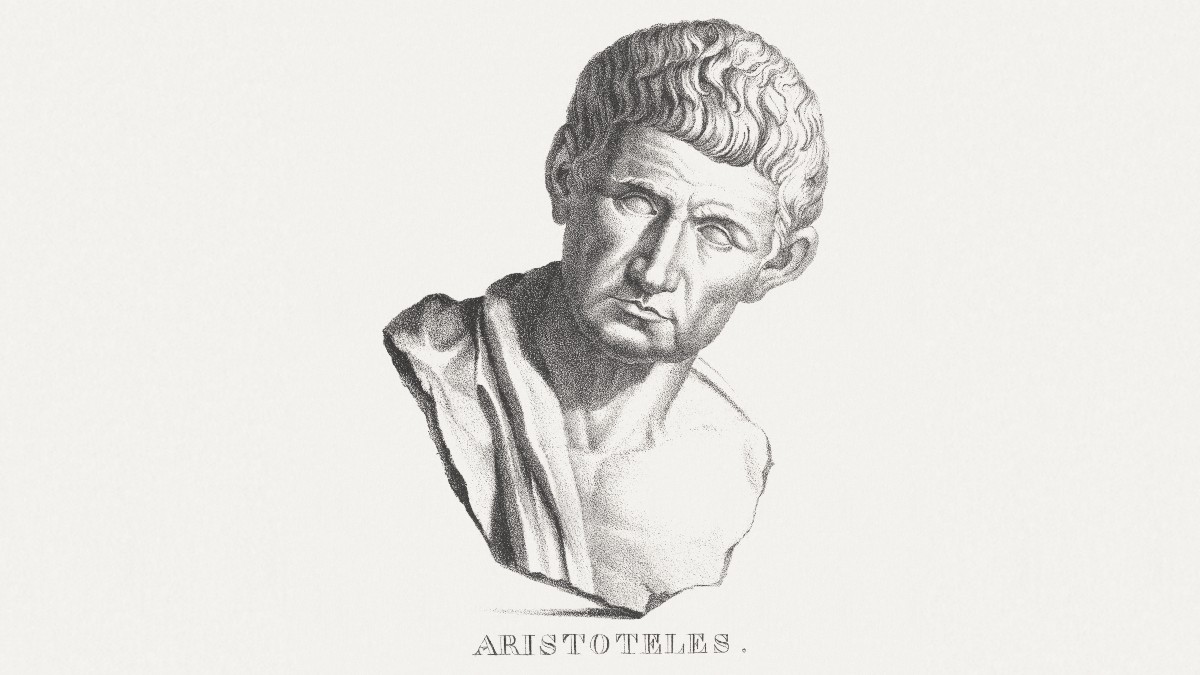Pythagoras: Life, work and achievements
Although famous throughout the world, Pythagoras’ life is shrouded in mystery.

Born in Samos in around 570 B.C, Pythagoras is commonly said to be the first pure mathematician who proposed that everything is a number.
Although he is most famous for his mathematical theorem, Pythagoras also made extraordinary developments in astronomy and geometry. He also developed a theory of music while and founded a philosophical and religious school in Croton, Italy. It was here he taught that "the whole cosmos is a scale and a number", according to the University of St Andrews .
While playing on his lyre, which was an ancient Greek stringed instrument, Pythagoras discovered that the vibrating strings created a beautiful sound when the ratios of the lengths of the wires were whole numbers, and that this was also true of other instruments. He combined this discovery with his understanding of the planets, conceiving the theory that when the planets were in harmony, it created beautiful music that man was incapable of hearing.
Pythagoras concluded that mathematics and music were interconnected and that knowledge of one area led to an understanding of the other, according to the University of Connecticut . He also believed that music had healing properties and would often play his lyre for the sick and dying.
Little is known about the life of Pythagoras and, as a result, many bizarre myths have sprung up around the man.
It was claimed amongst other things that he had taken part in the Olympics and was awarded laurels for pugilism, or boxing, when he was a young man. It was also said that he had fought in the Trojan Wars during a previous life.
This last myth reflects Pythagoras' genuine belief in metempsychosis, which argues that all souls are everlasting and, when the physical body dies, it simply floats away and finds a new body to live in, according to Stanford University. Later reports stated that he had been able to clearly recall four previous lives.
Get the world’s most fascinating discoveries delivered straight to your inbox.
His fascination with astronomy ,as with many ancient Greeks, combined with his deep understanding of numbers led Pythagoras to confirm that the Earth was in fact a sphere and, through patient study, he discovered that the Evening Star and the Morning Star were the same planet, Venus.
Pythagoras Theory
Pythagoras' Theory states that in a right angled triangle the square of the hypotenuse is equal to the sum of the squares of the other two sides, according to Encyclopedia Britannica.
In other words, when a triangle has a right angle and squares are made of each of the three sides, then the biggest square has the same area as the other two squares combined. The equation can be used to work out the length of a third side if only two measurements are given.

The Babylonians discovered this mathematical phenomena circa 1900 – 1600 BC but Pythagoras may have been first to prove it, according to New Scientist.
Although Pythagoras’ Theory is still taught in every classroom today, no one would recognise his original school of thought as it combined his mathematical teachings with philosophy and religion. His followers, the Pythagoreans
created a secret commune, filled with strange rules and regulations, according to Encyclopaedia Britannica.
Much of his written work was stored in the Great Library of Alexandria. Far from being the master mathematician that we think of today, Pythagoras was known for his belief in reincarnation, religious rituals and almost magical abilities, according to Stanford University. For example, it was said that he could be in two places at the same time. Today, these mystical elements have been almost forgotten and he is now looked upon as a founding father of science and mathematics.
In his footsteps
Plato
Greek philosopher Plato created the world's first university, known as the Platonic Academy, in ancient Athens. Although different from a modern day university, the Academy was a place where people could meet and share their academic beliefs. Plato based a large proportion of his teachings on the thoughts of Pythagoras and his Pythagorean disciples, according to Stanford University.

Aristotle
Like Pythagoras, Aristotle was interested in the concept of a soul, according to the University of Washington. He wrote "On the Soul", which set out to examine the psychology of mankind, the principles of which are still referred to by psychologists today. Aristotle combined metaphysics with scientific investigation just as Pythagoras had achieved with metaphysics and the Number Theory. He was also inspired by Pythagoras’ interest in astronomy, ultimately developing the physical model of the heavens.

Additional resources
To find out more about Pythagoras, check out “Pythagoras: His Life, Teaching, and Influence”, by Christoph Riedweg and “Pythagoras: His Lives And The Legacy Of A Rational Universe”, by Kitty Ferguson.
Bibliography
- Mickaël Launay & Stephen S. Wilson, "It All Adds Up: The Story of People and Mathematics", William Collins, 2019.
- NRICH, "All is Number", University of Cambridge, 2017.
- Michael Marshall, "Babylonians calculated with triangles centuries before Pythagoras", New Scientist, August 2021.
- Stanford Encyclopedia of Philosophy, "Pythagoras", University of Stanford, October 2018.
- Holger Thesleff, "Pythagoreanism", Encyclopedia Britannica, May 2020.
- Encyclopedia Britannica, "Pythagorean theorem", May 2020.
- University of Connecticut, "3.7 Music of the Spheres and the Lessons of Pythagoras", accessed in March 2022.
- Silvano Leonessi, "The Pythagorean Philosophy of Numbers", Rosicrucian Digest, Volume 1, 2009.
- J. J. O'Connor & E. F. Robertson, "Pythagoras of Samos", University of St Andrews, January 1999.
- Brent Swancer, "The Great Pythagoras and his Mystical Cult", Mysterious Universe, January 2021.
- Dimtry Sudakov, "Pythagoras and his theory of reincarnation", Pravda.ru, May 2013.
Jo is a freelance journalist, academic lawyer and lecturer specialising in criminal law and forensics. Jo has written for several magazines, including Real Crime and All About History. She is also the author of a number of true crime books and horror anthologies, such as "Murderous East Anglia" and "Strangers".
 Live Science Plus
Live Science Plus






